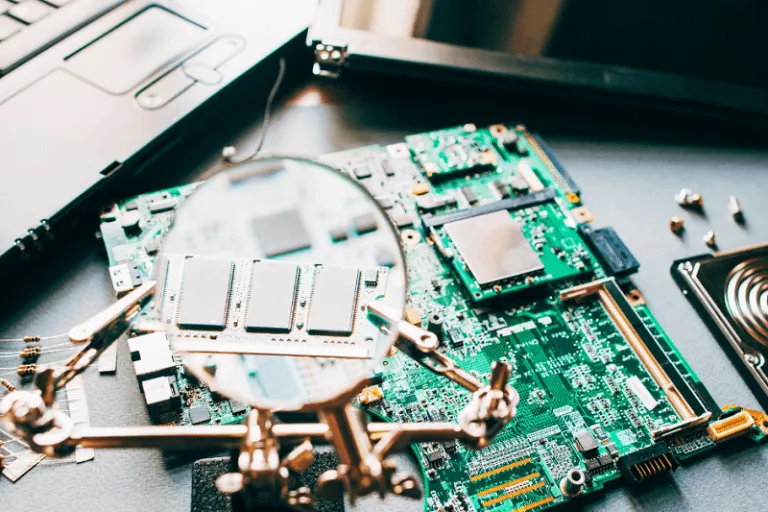The promise of new flavours beckons from Banawe.
Your Unused Mobile Data and Broken Phones Are Recyclable — But How?

As one of the least “techie” in my generation, you can say that I’m guilty of throwing away an old phone or unused prepaid load more than once. The faster I got rid of these digital or e-wastes, the faster I could start anew with a better device or fresh credits.
This was not only an ignorant move, but obviously harmful to the environment and my spending habits. But as I would finally find out, there’s such a thing as digital or electronics recycling. Only if I’d given it a chance sooner, then those old phones, unused prepaid load, leftover data, and other e-wastes wouldn’t have been for nothing.
The good news? It’s not too late for you, or even me.
Also read: These Islands Around the World Disappeared in the Last Decade
What is digital or electronics recycling?
From the words themselves, electronics recycling involves reusing old or unused technology, as well as products of it. A common example are relics or scraps from broken devices or machines which contain parts, materials, or chemicals too dangerous to be just thrown aside.
More than these known types of electronics junk, there are also digital forms of waste that are not as common. These include unused money in the form of mobile data and prepaid load, to name a few. They may not technically and traditionally fall under e-waste. However, as prone to mismanagement as they are, they might as well be.
How to recycle digital and traditional e-waste
Rather than dispose of digital and e-waste anytime you feel like you can’t use them anymore, you can recycle or reuse them instead. Even in the Philippines, it’s not as hard as you might think. Here are ways or resources you can turn to for easy digital and electronics recycling.
 Image credit: Brett Jordan
Image credit: Brett Jordan
Virtual “wastes” that can be recycled
1. Mobile data
Most, if not all, telecom companies in the Philippines pride themselves on their wireless cellular connection known as mobile data. It allows us to use the Internet even without WiFi — totally convenient! But not all of them exactly offer ways to maximise them.
Globe, on the other hand, has an initiative that helps convert unused mobile data to rewards points and GCash credits. A 10GB worth of leftover data, for example, is equivalent to 10 rewards points with the telco. These can be used for mobile promos and lifestyle vouchers.
Telcos like Smart and TNT likewise offer data-sharing services. Called Pasa Data, it helps a Smart or TNT user to use a fellow subscriber’s data. Not only that, those who have extra or unused data can donate them to others instead of letting them expire.
2. Prepaid and postpaid load
Before Filipinos could take advantage of data-sharing through their phones, most of us had the privilege of using a similar service for prepaid or postpaid load. Although their use varies depending on your mobile plan, both are prone to (mis- or in-) consumption.
Load-sharing services by telcos aren’t necessarily a new thing. However, people tend to forget them thinking they can always use their extra load for mobile data and promotions that they don’t really need. Then there’s me, who’s just terrible at keeping an eye on them.
In order to avoid further wastage of prepaid or postpaid load, offer them to those in need. If you’re supporting a charity or cause by certain groups, that extra load will even come in handy as monetary donations.
3. Phone number
Ever lost a phone and couldn’t be bothered to talk to your telco provider to retrieve your old number? Or have you wanted to switch networks in the Philippines but resent the idea of changing your number (because you essentially paid for it)?
As some telco subscribers might already know, the ability to retrieve an old phone number (in case of a lost phone) has been around for quite some time. Smart and TNT subscribers, for example, simply need to submit an affidavit of loss, proof of identification, and proof of ownership. There’s no replacement fee.
If your case seems more like the second scenario, then you’ll also be happy to know that there’s now what we call mobile phone portability. Effective in September 2021, it allows you to retain your mobile number when changing networks between Smart, Globe, and DITO. It’s free, too!
Also read: 8 Mobile Banking Apps Every Pinoy Should Have
 Image credit: golubovy via Canva Pro
Image credit: golubovy via Canva Pro
Used electronics for reselling or donation
1. E-waste recycling establishments
Although quite rare, establishments that accept used or broken electronics thrive in the Philippines. Some of them are even trusted dealers for reselling these items once they have been fixed or refurbished.
An example of such establishments is HMR Super Surplus Bodega, the storage, and its partner HMR Trading Haus, where all the refurbished goods are being sold at affordable prices. There’s also a service called E-Waste Management, which goes directly to homes to buy your e-waste. (Sadly, they’ve temporarily stopped operations for the time being due to safety concerns.)
One establishment is even accredited by the Department of Environment and Natural Resources or DENR. Envirocycle Philippines mainly recycles large items or those in bulk common among industrial companies. They also take pride in handling other types of electronic and hazardous waste.
2. Community projects and initiatives
Aside from established electronics recycling companies, there are also known groups or initiatives that support the same cause. Globe has already taken it upon itself to equip its stores nationwide with Globe e-waste bins. In partnership with e-waste handling facilities, they’ll turn electronics into reusable by-products.
With more than 100 of these bins or collection points found in Philippine cities, simply go to one nearest to you. For each old or non-working phone or other gadgets that you drop off for recycling, you’ll help fund the building of new schools in the province of Aklan.
Another campaign worth noting is The E-Waste Project by University of the Philippines campuses. It organises annual e-waste collection drives where you can give away items like memory cards, flash drives, MP3 players, cell phone chargers, and many more.
Also read: On-Demand Waste Collection App Makes Recycling Easier
 Image credit: sstop via Canva Pro
Image credit: sstop via Canva Pro
Don’t dispose of digital and e-waste, recycle them
Every year, people from around the world dispose of up to 50 million tons of e-waste, which mostly end up in landfills. Almost just as alarming is the amount of money we lose from misusing mobile technology that affects us in more ways than we can imagine.
With the country becoming more digital-friendly and more of us turning to electronics for survival and recreational purposes, digital and electronics recycling should be top priority. By being smarter and more aware of our digital and e-waste handling, we can help save the world we’re in one gadget or click at a time.
Featured image credit: Ashkan Forouzani | Unsplash
Published at
About Author
Joser Ferreras
Subscribe our Newsletter
Get our weekly tips and travel news!
Recommended Articles
10 Best Banawe Restaurants for a Mouthwatering Food Trip in QC 14 Best Credit Cards for Travel in the Philippines The only plastic we need for travel.
10 Commandments for Responsible Travel Flexing Spread the good word!
10 Tips for Planning Out-of-Town Trips During Typhoon Season Stay safe and travel well during the rainy season.
12 Most Colourful Natural Attractions Around The World! It’s time to cross over the rainbow!
Latest Articles
You Now Need to Pay Travel Tax Before Completing Your eTravel Form Here’s a simple guide to avoid airport delays!
New 5-Year LTO Registration For Brand-New Cars And Motorcycles Only Check if your car or motorcycle qualifies for the LTO extension!
Frasco Now Wants Her Face Removed from PH Tourism Materials Ashamed of her main character syndrome?
Ilagan City Wins ASEAN Clean Tourist City Award 2026 Ilagan City is officially one of the cleanest cities in Southeast Asia!
DOTr Is Fixing Airport Runways to Lower Your Airfare Tired of expensive domestic flights?

